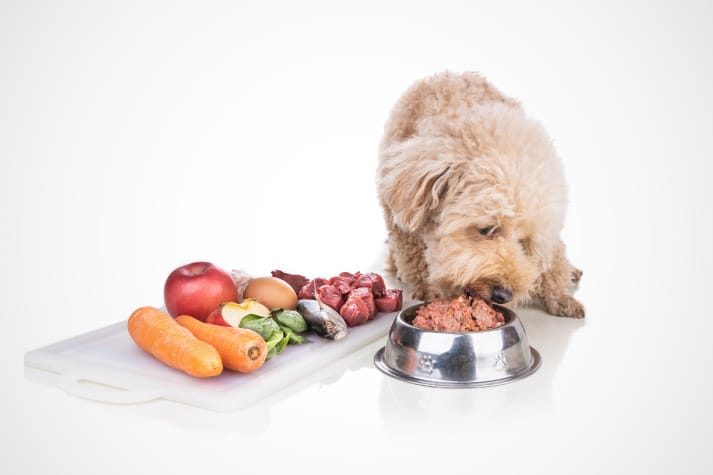
Importance of a Balanced Diet for Pet Happiness
A balanced diet is the foundation of a pet’s happiness and well-being. Just like humans, pets need the right mix of nutrients to stay active, healthy, and joyful. Proper nutrition strengthens their immunity, keeps their coat shiny, and maintains a healthy weight. Feeding them the right food not only ensures a longer life but also enhances their mood and overall quality of life.
🐶 Pet Star
12 min read · 29, Jan 2025

What Is a Balanced Diet for Pets?
A balanced diet means feeding pets the right combination of proteins, carbohydrates, fats, vitamins, minerals, and water. Each nutrient plays a vital role in their health:
- Proteins help in muscle development and repair.
- Carbohydrates provide energy.
- Fats keep their skin and coat healthy.
- Vitamins and minerals support immunity and organ functions.
- Water is essential for digestion and hydration.
Different pets have different dietary needs, so it’s important to feed them according to their species, age, and health conditions.
Why Is a Balanced Diet Essential for Pet Happiness?
- Boosts Energy and Activity Levels Just like you feel tired when you don’t eat well, pets also become lethargic if they don’t get proper nutrients. A nutritious diet gives them the energy to play, run, and enjoy life.
- Strengthens Immunity A strong immune system protects pets from infections and diseases. Nutrients like vitamin C, vitamin E, and antioxidants boost their immunity, helping them fight off illnesses.
- Improves Digestive Health A diet rich in fiber and probiotics helps in proper digestion. If a pet eats unhealthy food, they may suffer from constipation, diarrhea, or bloating, which can make them uncomfortable and irritable.
- Maintains a Healthy Weight Obesity in pets can lead to serious health problems like diabetes, arthritis, and heart diseases. Feeding them the right amount of food helps them stay fit and active.
- Enhances Mood and Behavior A well-fed pet is a happy pet. Poor nutrition can cause anxiety, aggression, or depression in pets. Essential nutrients like omega-3 fatty acids help maintain brain function and emotional stability.
- Keeps Their Coat and Skin Healthy A dull, dry coat is often a sign of poor nutrition. A diet rich in omega-3 and omega-6 fatty acids keeps their fur soft, shiny, and free from skin problems.
- Supports Dental Health A proper diet, along with dental treats or chews, helps prevent gum diseases and bad breath. Dry kibble or raw bones can naturally clean their teeth.
Common Mistakes in Pet Diets
- Overfeeding or Underfeeding Giving too much or too little food can lead to weight issues and nutritional deficiencies.
- Feeding Human Food Many human foods, like chocolate, onions, and grapes, are toxic to pets. Stick to pet-safe foods.
- Ignoring Hydration Water is as important as food. Always ensure your pet has access to clean drinking water.
- Lack of Variety Feeding the same food daily can lead to boredom and nutritional imbalances. Rotate between proteins and include different healthy ingredients.
- Ignoring Age-Specific Needs Puppies and kittens need more protein for growth, while senior pets need fewer calories but more joint-supporting nutrients.
How to Choose the Right Food for Your Pet
- Check the Ingredients – Look for high-quality protein sources and avoid artificial additives.
- Read Labels Carefully – Ensure the food meets the nutritional standards set by veterinary associations.
- Consult a Veterinarian – Always get professional advice before changing your pet’s diet.
- Try Homemade Meals (If Suitable) – Some pet owners prepare fresh, homemade meals using vet-approved recipes.
- Monitor Their Response – If your pet experiences allergies or digestive issues, adjust their diet accordingly.
Conclusion
A well-fed pet is a happy pet. Providing a balanced diet ensures they stay energetic, healthy, and live a long life by your side. Treat them with love and care by feeding them nutritious food that suits their needs.
Q&A Section
Q1: Can I feed my pet homemade food instead of commercial pet food?
Ans: Yes, but you must ensure it meets their nutritional needs. Consult a vet for proper recipes.
Q2: How often should I feed my pet?
Ans: It depends on their age and breed. Puppies and kittens need frequent meals, while adult pets usually eat twice a day.
Q3: What human foods are toxic to pets?
Ans: Chocolate, onions, garlic, grapes, avocados, and caffeine are toxic to most pets.
Q4: Is raw food safe for pets?
Ans: Some pets thrive on raw food, but it must be properly balanced and hygienic. Consult your vet before switching to a raw diet.
Q5: How do I know if my pet has a food allergy?
Ans: Symptoms include itching, vomiting, diarrhea, and ear infections. If you notice these, consult a vet for an allergy test.
Q6: Can treats be part of a balanced diet?
Ans: Yes, but in moderation. Treats should make up no more than 10% of their daily calorie intake.
Similar Articles
Find more relatable content in similar Articles
Explore Other Categories
© 2024 Copyrights by rPets. All Rights Reserved.